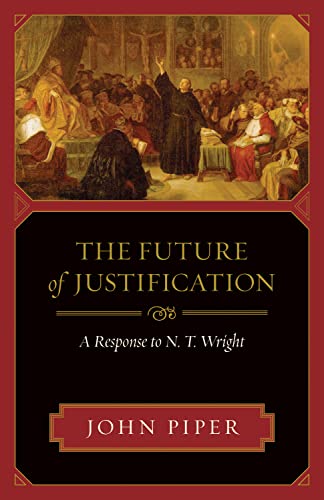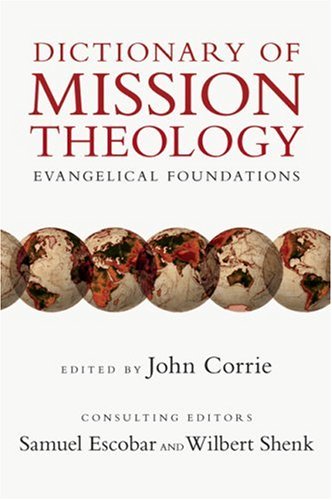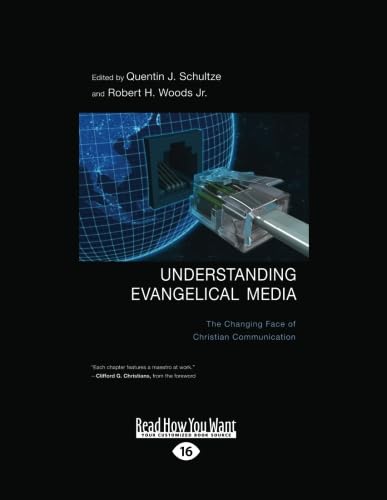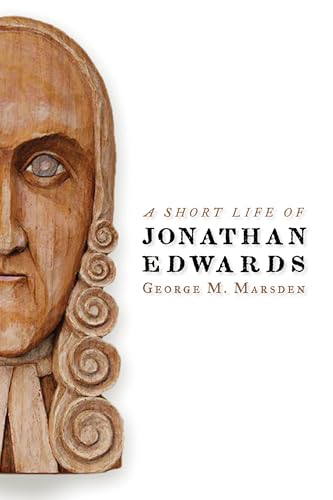The Future of Justification: A Response to N. T. Wright
Written by John Piper Reviewed By Stephen B. SmithIn the last several years, John Piper has repeatedly addressed the doctrine of justification in his sermons and writings. Now he does so via close interaction with the writings of prominent New Testament scholar and Anglican bishop N. T. Wright. Piper, who is the pastor for preaching and vision at Bethlehem Baptist Church in Minneapolis, Minnesota, is concerned that Wright’s presentation of the gospel, specifically the doctrine of justification, “is so disfigured that it becomes difficult to recognize as biblically faithful” (p. 15). After noting the Pauline curse upon those who offer a different gospel (Gal 1:8–9), Piper emphasizes that he does not consider Wright to be under this curse (p. 15), nor does he question whether Wright himself is truly justified before God, although he has “a defective view of justification” (p. 24). Piper is especially concerned that Wright’s global reconstruction in the area of New Testament theology contains vague and confusing ambiguities that are irreconcilable with the historic and biblical view of justification. However, he affirms Wright’s reverence for Scripture and hopes “that our common ground in Scripture will enable some progress in understanding and agreement” (p. 27).
Chapter 1 sets the stage methodologically with the caution that extra-biblical texts and first-century ideas can adversely constrain one’s understanding of Scripture since these sources can be misunderstood, misconstrued, and misapplied. Wright’s “esteem for the importance of the extra-biblical context seems to give it a remarkably controlling role for his interpretation of the New Testament” (p. 36).
Chapter 2 describes the usage of covenant and law-court imagery in regard to justification. Wright confuses denotation with implication by defining justification as God’s declaration that someone is a member of the covenant, rather than the divine act that makes a person so (pp. 39–40). On the contrary, Piper contends that “justification is part of the ground, not the declaration, of saving covenant membership” (p. 43).
Chapters 3–4 explore the law-court dynamics of justification in regard to the meaning of God’s righteousness and the necessity of real moral righteousness. Wright is criticized for defining divine righteousness in terms of what it does (“keeps covenant, judges impartially, deals properly with sin, and advocates for the helpless”), rather than what it is (p. 62). Instead, for Piper, “The righteousness of God consists most basically in God’s unswerving commitment to preserve the honor of his name and display his glory” (p. 66). Wright’s assertion that the historic understanding of imputation does not make sense (i.e., righteousness is not something that can be transferred from the judge to the defendant) is based on an inadequate definition of righteousness. Piper suggests that this transfer is possible when righteousness is viewed at the deeper level of attribute instead of actions alone (p. 71). Thus, the Judge counts “us as having the required moral righteousness—not in ourselves, but because of the divine righteousness imputed to us in Christ”; Wright thinks this whole way of framing the discussion is a category mistake (p. 80).
Chapter 5 outlines the practical implications of Wright’s insistence that the Gospel (“the announcement of Jesus’ universal lordship to all people”) be distinguished from justification, which declares an individual is part of God’s people but is not about how someone gets saved (p. 93). Piper claims that the admonition to “believe on Jesus, not the doctrine of justification” does not clearly reveal why the gospel is good news for individual sinners (pp. 85–86). He contends that only when Jesus’ lordship is connected to justification is this message heard as good news. Chapter 6 asserts,
Calling/faith/justification are parts of one event that brings us from God’s enmity to his acceptance. There is a logical sequence, but to say that justification only comes after we are “in” would misrepresent Paul’s treatment of justification as essential to the act of actually putting us in the right with God (p. 98).
Chapters 7–8 treat the relationship of works to justification. Piper believes that good works are viewed as the evidence and confirmation of our faith in Christ, rather than the basis for justification (p. 110). He is concerned that Wright’s analysis of final justification at the last day is ambiguous about how works function (pp. 118–19). Because Wright does not believe Christ’s perfect obedience is imputed to us via our union with Him, he has significantly diverged from the viewpoint of traditional Reformed exegesis (pp. 124–25). Additionally, Wright’s definition of faith as “faithful obedience” “leaves us with the impression that human transformation and Spirit-wrought acts of obedience are included in the term ‘faith’ when he speaks of present justification being by faith alone” (p. 131).
In chapters 9–10, Piper critiques Wright’s version of the New Perspective on Paul, namely, that Paul and Judaism have a formally similar soteriology: (1) “free and gracious entrance into the covenant”; (2) “a life of obedience to God out of gratitude for this grace”; and (3) “final justification on the basis of the entire life lived” (pp. 133–34). In reply, Piper distinguishes between hard and soft legalism, which both assume one’s works are related to one’s right standing with God; the former is self-produced, the latter a product of God’s grace (p. 152). He asserts that Wright’s arguments do not hold since “from Jesus’ standpoint, relational exclusivism (ethnic or otherwise) is rooted in self-righteousness, which means that ethnocentrism and legalism have the same root” (p. 157).
Chapter 11 returns to what Piper considers the heart of the matter: the imputation of God’s righteousness to us in Christ. He examines Rom 4:3–8; 5:18–19; Phil 3:9; 1 Cor 1:30; and 2 Cor 5:21, countering Wright’s exegesis in each passage. A final, concluding chapter reveals a basic concern that motivated Piper to write this book in the first place. He is afraid that Wright’s understanding of justification (specifically, future justification) is so similar to the Roman Catholic understanding that “his view will be co-opted as confirmation of the Catholic way” (p. 183). We must not think that our works of love cause God to be for us. To do so would take away from “the beauty and worth of Christ” as well as undermine “the assurance that God is totally for us” (pp. 186–88). Six appendices give further exegesis of specific texts and provide deeper access into Piper’s own understanding of justification and related matters.
The main strength of this book is Piper’s sustained attempt to accurately present and fairly critique the viewpoints of Wright, often including lengthy quotations and seeking to understand Wright’s position from the inside. Piper’s prose is readable, even in the midst of dense theological/exegetical analysis, and the chapters are divided into manageable sections with descriptive headings. Also salutary is his manifest concern for doctrinal preaching and its effect upon the church (cf. pp. 165–67).
Although Piper’s passion is the biblical text and faithful exegesis, it is obvious that his critique springs from a particular understanding of the ordo salutis. In his discussion of the historic doctrine of justification, an inclusion of the significant Arminian tradition of interpretation (e.g., John Wesley) would have provided a helpful balance to his focus on the Reformed and Roman Catholic perspectives. Even within the Reformed tradition, Daniel P. Fuller has pointed out the difference between aspects of Piper’s understanding and that of Jonathan Edwards, who “unlike Piper, viewed the works of faith as an integral part of the persevering faith essential for justification” (Reformation and Revival 12 [2003]: 118). Finally, while N. T. Wright is obviously the scholar scrutinized in this volume, Piper’s explanation of Christ’s imputed righteousness has recently been critiqued in a 29-page essay by Robert H. Gundry that responds to Piper’s earlier assessment of Gundry’s view (“The Nonimputation of Christ’s Righteousness,” in Justification: What’s at Stake in the Current Debates [ed. Mark Husbands and Daniel Treier; Downers Grove: IVP, 2004], pp. 17–45). Although Piper references other essays in this volume on justification, his various discussions of imputation never interact directly with Gundry’s critiques. Perhaps he will do so at a later time.
Overall, this is a thought-provoking, well written book that provides a valuable counterpoint to the influential scholarship of N. T. Wright. Piper has pointed out several inconsistencies and ambiguities in Wright’s voluminous writings, and has repeatedly called upon him to provide a clarifying response. Hopefully Wright will oblige him so that this dialogue on one of the central doctrines of the Christian faith may continue.
Stephen B. Smith
Trinity Evangelical Divinity School
Deerfield, Illinois, USA
Other Articles in this Issue
For Ezra had set his heart to study the Law of the LORD, and to do it and to teach his statutes and rules in Israel (Ezra 7:10)...
Salvation History, Chronology, and Crisis: A Problem with Inclusivist Theology of Religions, Part 2
by Adam SparksA fundamental requirement in an inclusivist understanding of the relationship between Christianity and other religions is evidence of God's salvific activity outside of any knowledge of Christ...
The Center of Biblical Theology in Acts: Deliverance and Damnation Display the Divine
by James M. Hamilton Jr.Acts 1:1 opens with a reference to what Jesus "began to do and teach"1 recounted in the Gospel of Luke, indicating that this second volume will carry the narrative of Jesus' actions and teachings forward...
Shared Intentions? Reflections on Inspiration and Interpretation in Light of Scripture’s Dual Authorship
by Jared ComptonIt was not too long ago that Kevin Vanhoozer answered the question Is There a Meaning in This Text? by relocating meaning in authorial intention,1 doing so even more robustly (not to mention, evangelically) than E...
The original question I was asked to address was "How does our commitment to the primacy of the gospel tie into our obligation to do good to all, especially those of the household of faith, to serve as salt and light in the world, to do good to the city?" I will divide this question into two parts: (1) If we are committed to the primacy of the gospel, does the gospel itself serve as the basis and motivation for ministry to the poor? (2) If so, how then does that ministry relate to the proclamation of the gospel?







